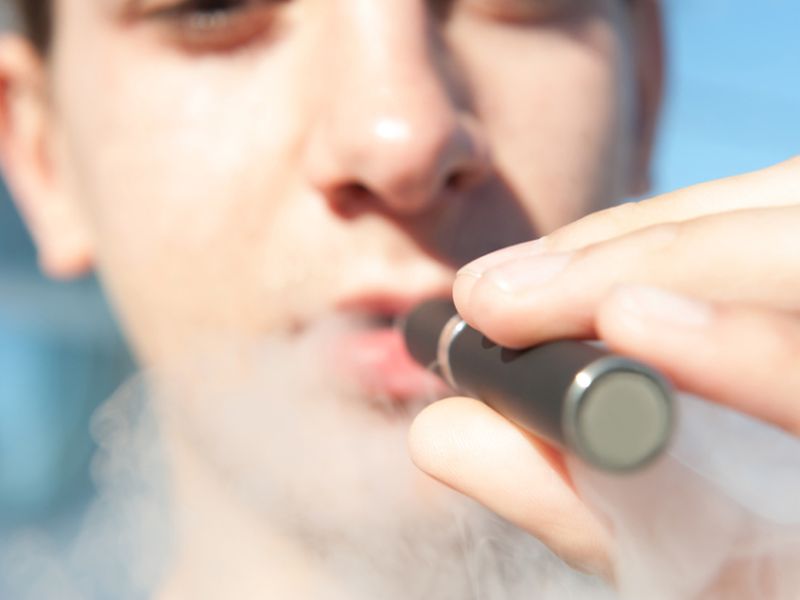MONDAY, April 1, 2019 (HealthDay News) — As electronic cigarettes took off, some worried they would lead teens back to traditional cigarettes. But new research suggests that’s not the case.
Vaping has done little to slow or reverse a two-decade decline in the popularity of regular cigarettes among youth, a British study suggests.
“Given the important contribution to public health which has been achieved by the ‘denormalization’ of smoking among young people, we need to keep a close eye on anything which might reverse that,” stressed study author Graham Moore.
So, could vaping somehow make smoking “cool” again among youth?
To find out, Moore’s team analyzed surveys conducted between 1998 and 2015 of roughly 248,000 English, Scottish and Welsh students, aged 13 to 15.
The polls revealed that the percentage of teens who had ever tried a cigarette plummeted from 60% in 1998 to just 19% by 2015. The percentage of regular smokers also dropped, from 19% to 5%.
That trend continued despite the advent of vaping earlier this decade, the investigators found.
“From our conversations with young people, the fact that the rise in experimentation with e-cigarettes was not accompanied by a rise in smoking does make some sense,” added Moore, a reader in the school of social sciences at Cardiff University in Wales.
Moore noted that today’s youth “tend to distinguish quite strongly” between smoking cigarettes and using e-cigarettes.
For example, teens embrace the term “vaping” as a way to identify e-cigarettes “as a different entity to tobacco cigarettes,” he said.
In the United Kingdom and the United States, tobacco smoking is “still widely regarded as unacceptable by most young people,” said Moore.
Among American students last year, 5% of middle schoolers and 21% of high school kids reported having vaped in the past month, according to the U.S. Centers for Disease Control and Prevention.
Meanwhile, less than 2% of middle school students and about 8% of high school students reported smoking cigarettes in the past month, a significant drop since 2011.
The British surveys looked at use and attitudes toward traditional cigarettes, alcohol and pot. They didn’t track e-cigarette habits but many studies indicate a meteoric rise in vaping’s popularity in recent years.
Survey responses among a smaller pool of 162,000 teens revealed that falling cigarette use has gone hand-in-hand with increasingly unfavorable opinions about traditional cigarettes. For example, between 1999 and 2015, the percentage of British teens who thought it was OK to try a standard cigarette dropped from 70% to just 27%.
But if teen vaping is replacing teen smoking, is that a cause for celebration or concern?
“Of course, e-cigarettes being a relatively new product, we cannot be certain about the precise harms associated with them,” cautioned Moore.
Although he said e-cigarettes are unlikely to be as unhealthful as standard cigarettes, the aerosol that vapers inhale contains nicotine — the addictive drug in traditional cigarettes — and other chemicals. E-cigarette “use by nonsmokers, particularly children and adolescents, is something which we should be looking to prevent,” Moore added.
Jeffrey Drope, of the American Cancer Society, seconded that thought. He is vice president of economic and health policy research.
Drope agreed that e-cigarettes are likely “less harmful,” relatively speaking. But he stressed that “the magnitude of that harm is not accurately known at this point in time.” He added that it remains unclear whether teen smoking might have declined even faster if vaping had never come along.
Drope concurred that the ultimate goal should be to steer teens away from vaping, “both because [e-cigarettes] are inherently harmful — even if the harm is likely less so than from cigarettes — but also because for some, or even many, it may be a pathway to using more harmful tobacco products.”
The new findings were published online April 1 in Tobacco Control.
More information
There’s more on teen smoking patterns at the U.S. Centers for Disease Control and Prevention.
Copyright © 2026 HealthDay. All rights reserved.

